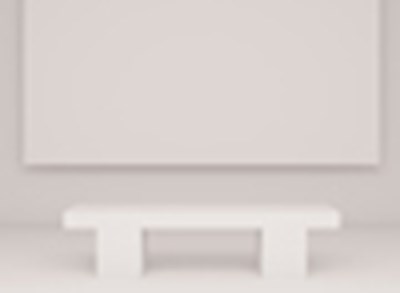Most Recent Articles
-

Blog / Jack Covert Selects
Jack Covert Selects - Compelling People
By 800-CEO-READ
Compelling People: The Hidden Qualities That Make Us Influential by John Neffinger & Matthew Kohut, Hudson Street Press, 304 pages, $25. 95, Hardcover, August 2013, ISBN 9781594631016 This book is required reading at Harvard Business School, and for good reason—it helps their students become more successful, and it can do the same for all of us. There is no denying that how the world sees us can make all the difference in how successful we are, and that is exactly what Compelling People addresses.
Categories: jack-covert-selects
-

Blog / Jack Covert Selects
Jack Covert Selects - The In-Between
By 800-CEO-READ
The In-Between: Embracing the Tension Between Now and the Next Big Thing by Jeff Goins, Moody Publishers, 176 pages, $13. 99, July 2013, ISBN 9780802407245 We believe in the power of business books to help managers solve a particular business quandary, inspire an individual to take greater control over their professional lives, to work smarter, be more creative, start something new, or improve an already existing organization. That said, business books are not a panacea, and one can overdose on their advice to live larger, strike out on our own, to change the world.
Categories: jack-covert-selects
-

Blog / News & Opinion
The FT/Goldman Sachs Business Book of the Year Longlist
By 800-CEO-READ
The Financial Times & Goldman Sachs Business Book of the Year longlist has been announced. It is, as Andrew Hill of the FT writes, a reading list that mixes low deeds and high hopes (registration required). The list includes: After the Music Stopped: The Financial Crisis, the Response, and the Work Ahead by Alan Blinder, The Penguin Press The Alchemists: Three Central Bankers and a World on Fire by Neil Irwin, The Penguin Press Big Data: A Revolution That Will Transform How We Live, Work, and Think by Viktor Mayer-Schönberger & Kenneth Cukier, Houghton Mifflin Harcourt The Billionaire’s Apprentice: The Rise of The Indian-American Elite and The Fall of The Galleon Hedge Fund by Anita Raghavan, Business Plus The End of Competitive Advantage: How to Keep Your Strategy Moving as Fast as Your Business by Rita Gunther McGrath, Harvard Business Review Press The End of Power: From Boardrooms to Battlefields and Churches to States, Why Being In Charge Isn’t What It Used to Be by Moisés Naím, Basic Books The Everything Store: Jeff Bezos and the Age of Amazon by Brad Stone, Little Brown and Company Give and Take: A Revolutionary Approach to Success by Adam Grant, Viking Books The Great Escape: Health, Wealth, and the Origins of Inequality by Angus Deaton, Princeton University Press How Asia Works: Success and Failure in the World’s Most Dynamic Region by Joe Studwell, Grove Press Lean In: Women, Work, and the Will to Lead by Sheryl Sandberg, Knopf Publishing Group Making it Happen: Fred Goodwin, RBS and the Men Who Blew Up the British Economy by Iain Martin, Simon and Schuster (I don't see that this is being released in the U.
Categories: news-opinion, publishing-industry
-

Blog / News & Opinion
ChangeThis: Issue 108
By 800-CEO-READ
Art Is Freedom by Erik Wahl “My name is Erik Wahl and Art has saved me from a life of slavery. I am a recovering suit and tie. I am recuperating from years as a gear in a wheel that barely touched the ground.
Categories: news-opinion
-

Blog / ChangeThis
The Biology of the Bottom Line
By Frank Forencich
"Can we succeed without the body. On the face of it, this seems like a ridiculous question, but when we step back and take a closer look at modern organizational culture, we might be inclined to wonder. After all, most discussions of management and strategy take place in the disembodied, abstract world of the mind. The body is considered a minor player at best and health becomes a concern only in its absence, when skyrocketing medical costs, absenteeism, and presenteeism reach unacceptable levels. In practice, today's organization is almost completely blind to the body and its contribution to performance. We are, in the language of therapy, 'vertically disintegrated' or to put it more bluntly, 'dead from the neck down. ' As Sir Ken Robinson put it in his legendary TED talk, most of us now consider the body to be little more than 'a locomotor device for the head,' a transport mechanism whose only purpose is to move the brain from one computer terminal or meeting to the next. And so it comes as no surprise to discover that we are suffering catastrophic consequences.
Categories: changethis
-

Blog / ChangeThis
How To Be a Disruptive Hero
By Bill Jensen
"Disruptive heroes are the people who either completely change the rules or teach us that the status quo needs to be pushed, challenged or broken. They have a major impact on what we believe is possible, what we do and who we become. If that sounds daunting for you to take on...don't freak out! You get to pick the scale and scope of your efforts. Focus on something that's mostly within your control and becoming a hero will be easier than you first thought. But if you would like to change the world as a disruptive hero, could you? Yep. Most of the biggest names in arts, government, business, social movements and more got there by being disruptive. Go for it!"
Categories: changethis
-

Blog / ChangeThis
The Impact Manifesto: You Make A Difference Whether You Want To Or Not
By Ken McArthur
"You impact the people around you. From the very day you are born, you make a difference. Your parents took one look at you and realized their lives would never be the same. People feel your influence countless times, in amazing ways you never notice. Just as the butterfly's wings can change the weather, your tiny movements may create storms that shake the entire earth. Your impact is incredible, and today is the day you can take charge of it. Today you can amplify everything good. Call it the Impact Factor."
Categories: changethis
-

Blog / ChangeThis
Art Is Freedom
By Erik Wahl
"My name is Erik Wahl and Art has saved me from a life of slavery. I've been a member of A. A. (Artists Anonymous) for over twelve years. I am a recovering suit and tie. I am recuperating from years as a gear in a wheel that barely touched the ground. And now, after rediscovering my Art by freeing my mind and digging to find my inner creative genius, I am a proud survivor of 'standardized education. ' I found a new path. I learned to UNthink. I learned how to unleash and unlock my mind to find freedom. In my search for freedom, I was unaware that 'art' (actual paintbrushes and paints) would serve as my personal rehab as I began to rebuild from rock bottom. But during this deep search for real answers, I realized the term art had been misused for centuries. What originally began as a term defining the interaction between geniuses and muses eventually was morphed into a hierarchical description of taste and masterpieces. 'Art' became a product and 'artist' became a career where, like any other job, you could succeed or fail.
Categories: changethis
-

Blog / ChangeThis
FundRazor: How Collective Sourcing Can Fix Public Education
By John Malone
"What if everybody with a child in public school decided, collectively, to stop buying one thing in favor of another? How much would a company pay to have their product be the new thing bought? We are talking about leveraging an emotional tie to a business decision. We are talking about bringing small businesses and education together. But we have a few hurdles to get over first. When it comes to changing the way we fund public education, we have to stop looking at ourselves as just voters and taxpayers. We must also identify ourselves as consumers and business owners, and use that as a way to see what funds are available and really get what we need."
Categories: changethis
-

Blog / ChangeThis
Brother John
By August Turak
"Uncertainty as to life's purpose is much in vogue today. So too are the relativistic notions that would consign life's purpose to a matter of taste. The agony of life is uncertainty and the rationalization is that uncertainty is certain. However, the plain truth is that for all our anguish we treasure uncertainty. Doubt forestalls action. The problem with life's purpose is that we know damn well what it is but are unwilling to face the changes in our lives that a commitment to self-transcendence, to being the best human being we could possibly be, would entail. It wearies us just thinking about it. So we rationalize that it's all "relative," or that we're already doing enough and don't have time. Worst of all we rationalize that those who do accept the challenges inherent in self-transcendence are uniquely gifted and specially graced."
Categories: changethis


